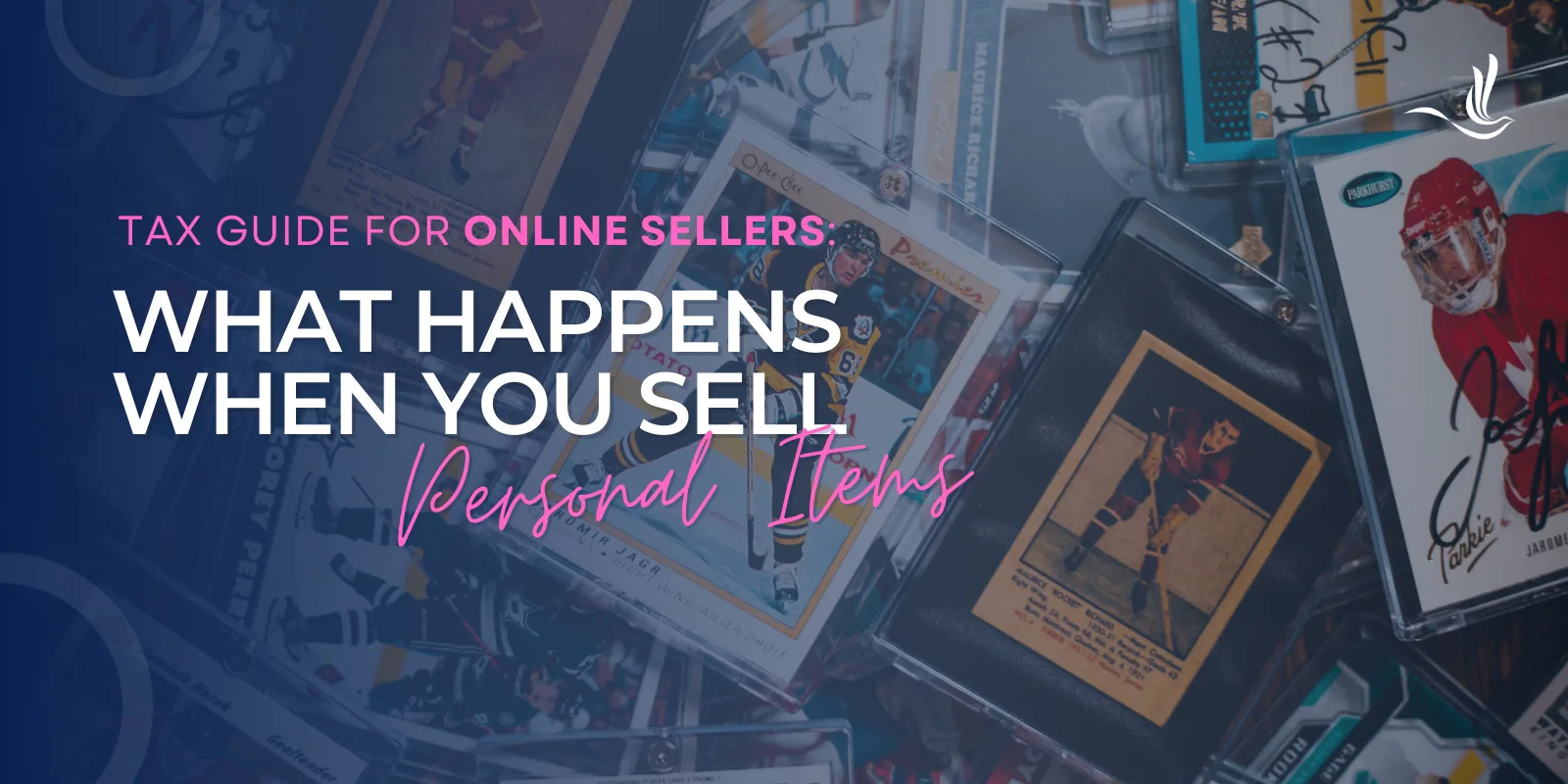Key Takeaways
Casual vs. business sales: The IRS distinguishes between one-time personal sales and ongoing sales made for profit; frequent sellers may be considered a business.
Personal item sales: You only owe tax if you sell an item for more than you originally paid—losses on personal items aren’t deductible.
1099-K thresholds restored: Under the One Big Beautiful Bill Act (OBBBA), you’ll receive a 1099-K only if you exceed $20,000 in payments and 200 transactions per year, retroactive to 2022.
Casual sellers unaffected: Most individuals selling personal belongings on platforms like eBay, Venmo, or Facebook Marketplace will not receive a 1099-K unless their activity is substantial.
Reporting gains: Profitable sales must be reported on Schedule D (Form 1040); the tax rate depends on how long the item was owned.
Recordkeeping matters: Keep purchase receipts and sale records to show cost basis, verify 1099-K accuracy, and prove whether gains are taxable.
Selling personal items online has become a common practice. Many people do this through platforms like eBay, Facebook Marketplace, Offerup, or Poshmark. Many people sell items they no longer need, such as clothing, electronics, or furniture. While selling a few personal belongings may seem straightforward, there are tax implications to consider. Understanding when and how taxes apply to these sales can help avoid surprises and ensure compliance with IRS regulations.
Selling Personal Items vs. Operating a Business
The IRS differentiates between casual sales of personal property and business activity. Selling personal items generally means disposing of belongings that were purchased for personal use, rather than for resale. For example, if someone sells a used laptop they no longer need, it is considered a personal sale. However, if they regularly buy discounted laptops to resell at a higher price, they may be considered a business.
The key factors the IRS considers when determining business activity include frequency of sales, intent to make a profit, and the level of engagement in sales-related activities. Occasional sales of personal property do not constitute a business, but frequent and organized sales suggest business income.
When You Owe Taxes on Personal Item Sales
Selling a personal item typically does not result in taxable income if it is sold for less than the original purchase price. This is because there is no gain to report. However, if a personal item is sold for more than its original cost, the difference is considered a capital gain and may be subject to tax.
For example, if a person buys a collectible watch for $500 and later sells it for $1,000, they have a capital gain of $500. This gain must be reported on their tax return, and the applicable tax rate depends on how long they owned the item. If they held the watch for more than a year, the sale qualifies for long-term capital gains tax rates, which are lower than ordinary income tax rates. If they sold it within a year of purchase, the gain is taxed as short-term capital gains, which are subject to regular income tax rates.
Personal losses, however, are not deductible. If someone buys a couch for $1,200 and later sells it for $400, they cannot claim an $800 loss on their tax return. The IRS does not allow deductions for losses on the sale of personal-use property.
Form 1099-K and the New Reporting Thresholds
Recent changes under the One Big Beautiful Bill Act (OBBBA) have restored higher reporting limits for Form 1099-K, which payment platforms like PayPal, Venmo, and eBay use to report transactions to the IRS.
Under the new law, you’ll receive a 1099-K only if you earn more than $20,000 and complete over 200 transactions in a year. The OBBBA permanently repealed the planned lower thresholds ($2,500 in 2025 and $600 in 2026) and made the higher standard retroactive to 2022.
This means most casual online sellers, people selling personal items or using payment apps for small, occasional sales, will no longer receive a 1099-K unless their activity is frequent and substantial. However, all taxable income must still be reported, even if you don’t get the form.
For example, if you sell $3,000 worth of used electronics but originally paid $4,500, you won’t owe tax or receive a 1099-K. But if you regularly sell items for profit, that income may be considered business income and must be reported.
Even with the higher threshold, good recordkeeping is essential. Track what you paid and received for each sale, and save receipts or documentation in case the IRS requests proof. If you do receive a 1099-K, remember it reports total payments, not profits—so you’ll need to account for your original costs and any deductible expenses.
In short: the OBBBA keeps the $20,000 and 200 transactions threshold in place going forward. While this spares most casual sellers from extra paperwork, it doesn’t remove the responsibility to report income or maintain accurate records
How to Report Personal Item Sales on Your Tax Return
If a personal item is sold for a gain, it must be reported on Schedule D of Form 1040, which covers Capital Gains and Losses. The original purchase price is subtracted from the sale price to determine the taxable gain.
For example, if a person sells a rare book for $800 after purchasing it for $200, they report a $600 gain on Schedule D. If they had held the book for over a year, they qualify for the lower long-term capital gains tax rates. However, if they sold it within a year of purchase, the gain is taxed at ordinary income tax rates.
If a seller receives a 1099-K but has no taxable income because all sales resulted in losses, they should still report the transactions. This ensures the IRS does not mistakenly assume the entire amount is taxable. In such cases, they can report the total sales proceeds and the corresponding cost basis to show no taxable gain.
Tips for Avoiding Tax Surprises
Keeping detailed records of purchases and sales is essential for proving whether a gain exists. This includes keeping receipts, credit card statements, or any documentation showing the original cost of items. If records are unavailable, reasonable estimates based on similar items can sometimes be used.
Distinguishing between personal sales and business activity is also important. If a seller frequently engages in sales with the intent to profit, they should report the income as business revenue and may be required to pay self-employment taxes. Understanding state sales tax obligations is another key consideration. Some states, such as California and Washington, require sellers to collect and remit sales tax on transactions, even for personal items.
Tax Help for Online Sellers
Selling personal items online does not always result in taxable income, but understanding the tax implications is crucial. If an item is sold at a gain, it must be reported, while losses cannot be deducted. The introduction of lower 1099-K reporting thresholds means more sellers will receive tax forms, making record-keeping even more important. Staying informed and consulting a tax professional when needed can help ensure compliance and prevent unexpected tax liabilities. Optima Tax Relief is the nation’s leading tax resolution firm with over a decade of experience helping taxpayers with tough tax situations.
If You Need Tax Help, Contact Us Today for a Free Consultation





























